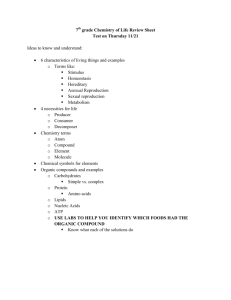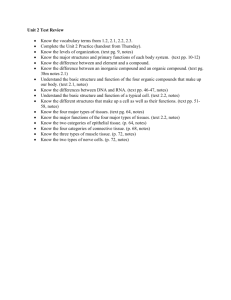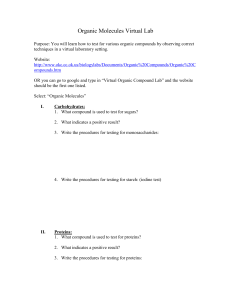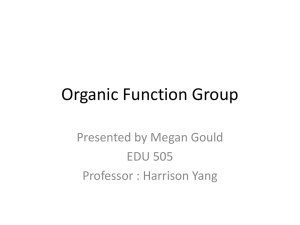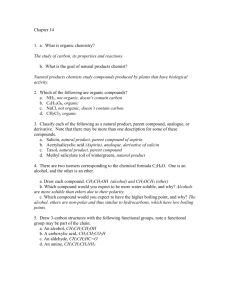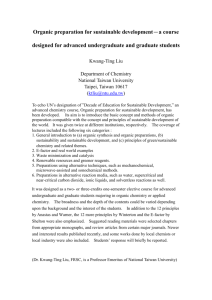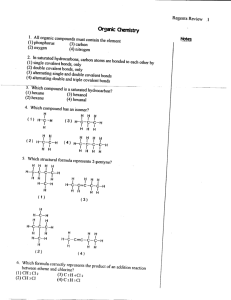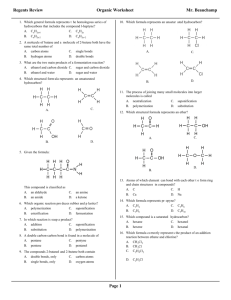Solution 22. - Tutor Breeze
advertisement
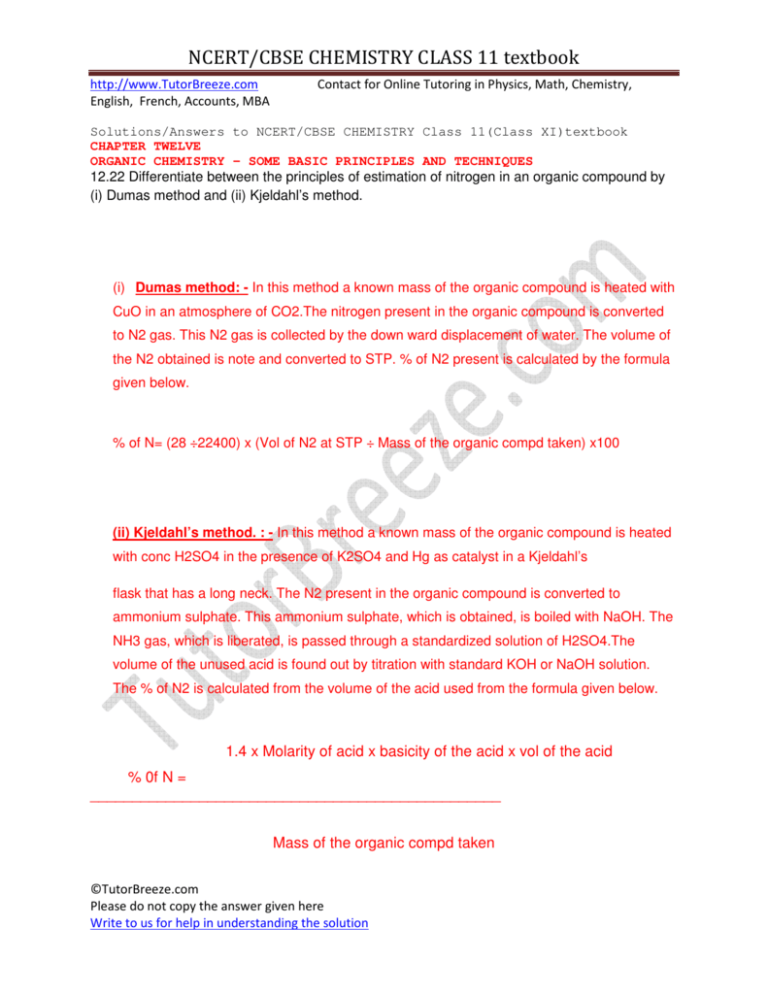
NCERT/CBSE CHEMISTRY CLASS 11 textbook http://www.TutorBreeze.com English, French, Accounts, MBA Contact for Online Tutoring in Physics, Math, Chemistry, Solutions/Answers to NCERT/CBSE CHEMISTRY Class 11(Class XI)textbook CHAPTER TWELVE ORGANIC CHEMISTRY – SOME BASIC PRINCIPLES AND TECHNIQUES 12.22 Differentiate between the principles of estimation of nitrogen in an organic compound by (i) Dumas method and (ii) Kjeldahl’s method. (i) Dumas method: - In this method a known mass of the organic compound is heated with CuO in an atmosphere of CO2.The nitrogen present in the organic compound is converted to N2 gas. This N2 gas is collected by the down ward displacement of water. The volume of the N2 obtained is note and converted to STP. % of N2 present is calculated by the formula given below. % of N= (28 ÷22400) x (Vol of N2 at STP ÷ Mass of the organic compd taken) x100 (ii) Kjeldahl’s method. : - In this method a known mass of the organic compound is heated with conc H2SO4 in the presence of K2SO4 and Hg as catalyst in a Kjeldahl’s flask that has a long neck. The N2 present in the organic compound is converted to ammonium sulphate. This ammonium sulphate, which is obtained, is boiled with NaOH. The NH3 gas, which is liberated, is passed through a standardized solution of H2SO4.The volume of the unused acid is found out by titration with standard KOH or NaOH solution. The % of N2 is calculated from the volume of the acid used from the formula given below. 1.4 x Molarity of acid x basicity of the acid x vol of the acid % 0f N = _________________________________________________ Mass of the organic compd taken ©TutorBreeze.com Please do not copy the answer given here Write to us for help in understanding the solution
